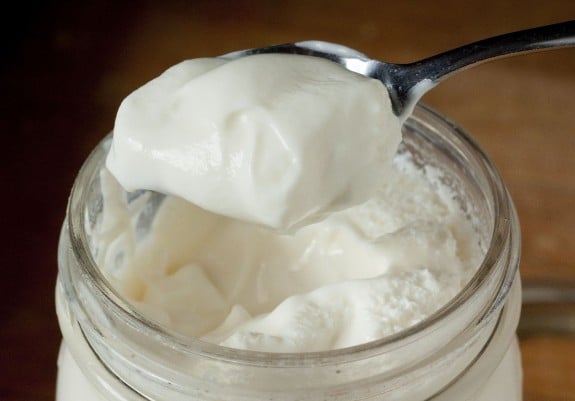The traditional Greek diet, which is rich in plant foods, healthy fats and seafood, has long been known as “the wonder diet” by nutrition experts, and numerous studies agree it can be the recipe to a longer and healthier life.
Dietitian Dr Catherine Itsiopoulos has studied the Mediterranean diet extensively and explains that not only can it help you lose weight, it can also reduce your risk of heart disease, type 2 diabetes and brain diseases such as Alzheimer’s and Parkinson’s. “It can be adapted to suit any culture,” she says. “It focuses on fresh, readily accessible foods with healthy fats and antioxidants from plant foods.”
In her new book The Mediterranean Diet (Pan Macmillan), Itsiopoulos shares her top 10 tips on how to apply simple Greek-style principles to your everyday diet, so you can enjoy the taste and health benefits.
Eat fish twice a week
Fish and shellfish are staple components of a Mediterranean diet, especially oily varieties such as sardines, as well as mussels, clams and octopus. The naturally high omega-3 fat content makes seafood particularly beneficial for the cardiovascular system, brain function, nervous system and general growth and development.
Enjoy yoghurt and cheese in moderation
Itsiopoulos says it’s best to limit saturated fats but she encourages people to consume yoghurt and fetta cheese in small amounts. The added probiotic benefit of live bacteria such as lactobacillus and bifidobacterium found in fermented dairy products helps to strengthen gut immunity.Have two legume-based meals a week
Legumes (chickpeas, kidney beans, lentils, split peas) are a great source of plant-based protein and dietary fibre without the saturated fats. Combining legumes with wholegrains will give your body a boost of amino acids, the building blocks it uses to make proteins.
Consume red meat but less of it
Animal-based proteins are a great source of amino acids but they contain saturated fats. Itsiopoulos suggests eating small portions, less often. And choose lean cuts – according to Meat & Livestock Australia almost two-thirds of the fat in lean beef is unsaturated. Avoid processed meats such as salami.Add wholegrain breads and cereals
Wholegrains and cereals are a great source of dietary fibre, which is essential for healthy digestion. Fibre lowers LDL or “bad” cholesterol levels and can reduce the likelihood of diseases such as bowel cancer.
Enjoy wine (without going overboard)
Wine consumption is very much a part of the Mediterranean diet. Red wine, in particular, is better for you than white varieties as it’s rich in resveratrol, an important antioxidant that’s been shown to reduce blood clots, arterial plaque formation and the risk of stroke.Eat fresh fruit daily
Citrus fruits such as oranges and lemons are known to boost immunity and assist in the absorption of iron from green, leafy vegetables. Similarly, there’s evidence that a diet that’s high in blue and purple-colour fruit such as blueberries reduces the risk of heart disease thanks to the powerhouse antioxidant anthocyanin.
Sweets are OK
Itsiopoulos says a sweet treat is fine now and then, as part of a balanced diet. “The Mediterranean diet isn’t about [unrealistic or punitive] restrictions,” she says. A study by researchers at Swinburne University of Technology in Victoria recently revealed that the polyphenols in dark chocolate increase feelings of calm and contentment.
Add veg and herbs to each meal
Always serve a mixture of vegetables and herbs with each meal in order to benefit from antioxidants such as polyphenols and carotenoids, commonly found in most green, leafy veg. Similarly, lycopene, which is found in tomatoes, is effective in fighting free-radical damage.Use olive oil
Using monounsaturated fat such as olive oil in your cooking helps lower unhealthy cholesterol levels and reduces the risk of heart disease. Olive oil is the first choice in the Mediterranean way of eating but can be substituted with other monounsaturated oils such as canola.Source







No comments:
Post a Comment